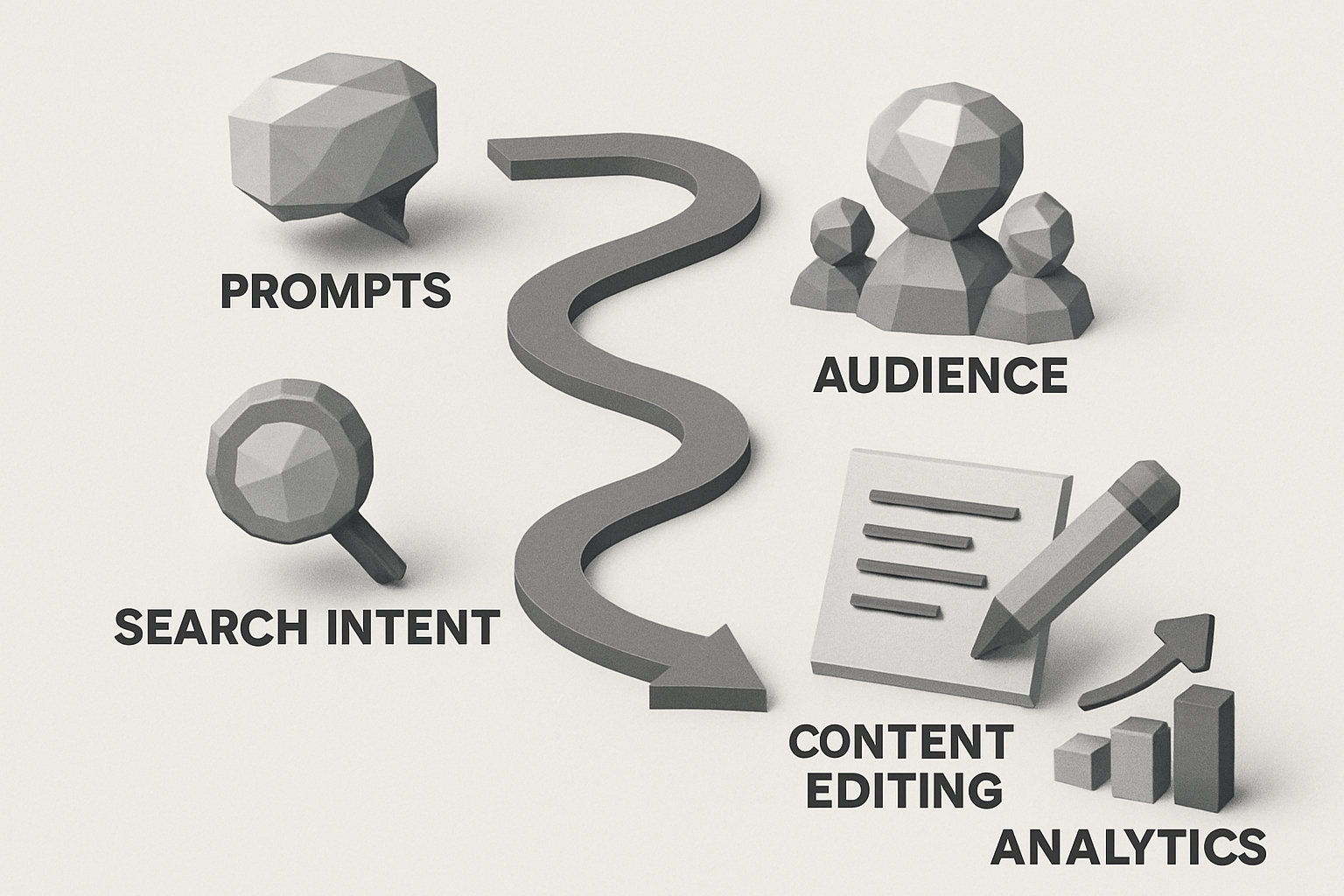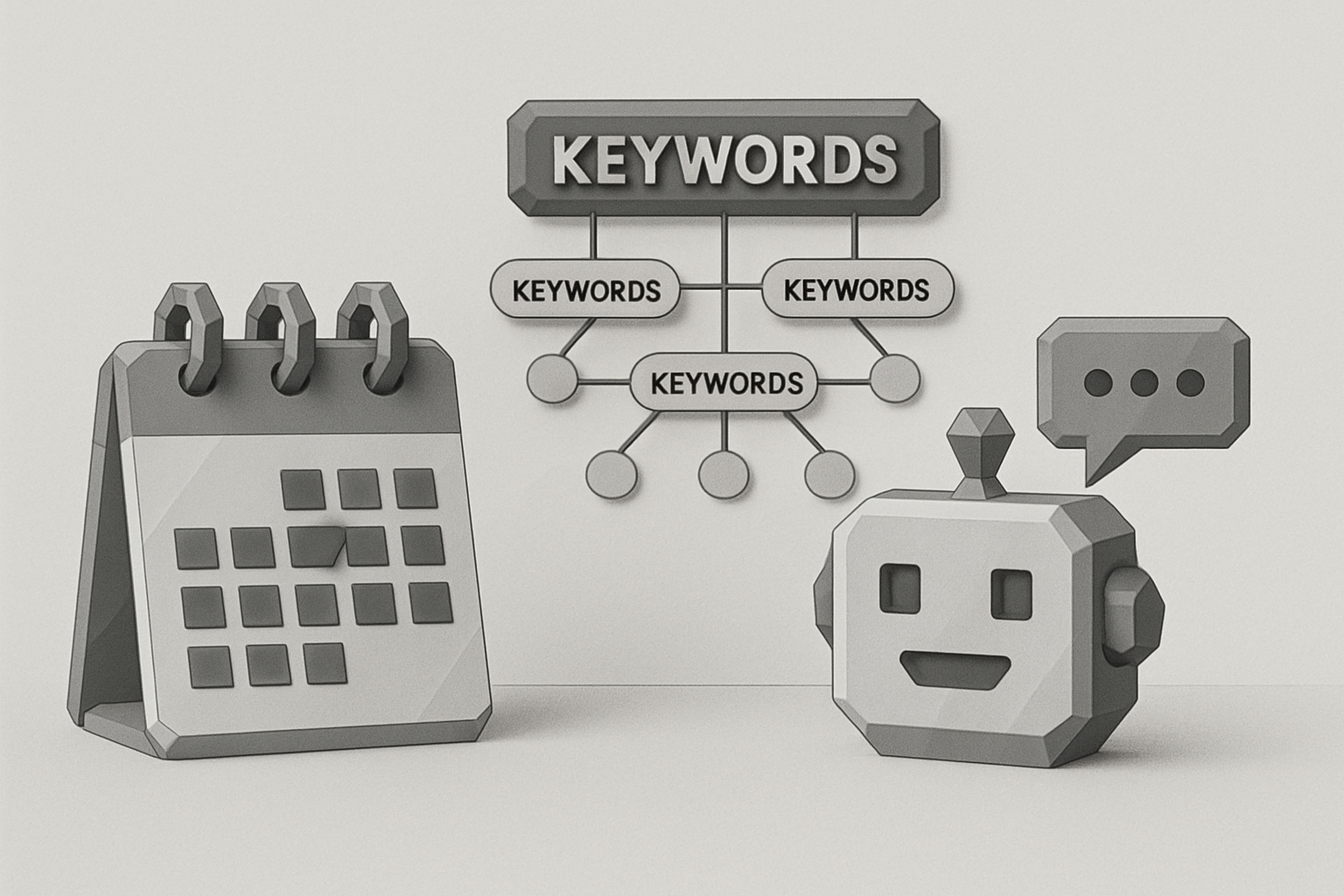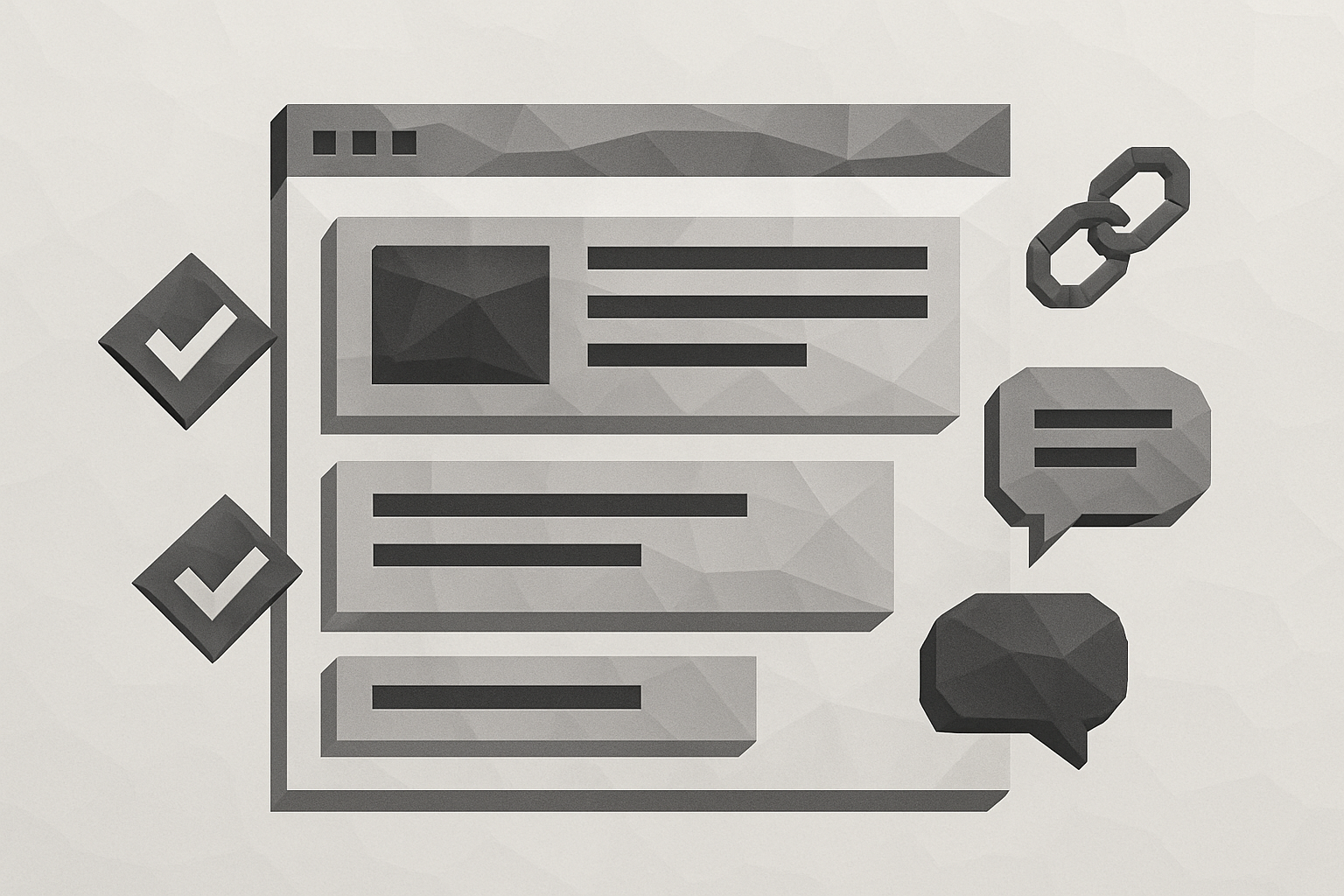AI-driven content is exploding, and ChatGPT stands at the center of a revolution in SEO for ChatGPT. In 2025, this technology is transforming how websites attract and engage organic visitors.
Staying ahead means mastering SEO for ChatGPT to keep your strategy competitive and resilient. This guide will walk you through everything beginners need: understanding new SEO trends, crafting effective prompts, advanced keyword research, on-page and off-page tactics, and must-have tools.
With actionable steps and proven strategies, you’ll learn how to maximize your results and future-proof your content in the evolving world of AI and SEO.
Understanding SEO for ChatGPT: What’s New in 2025?
The world of SEO is being transformed by AI, and 2025 is a turning point for anyone serious about staying ahead. As ChatGPT and similar AI models become mainstream, businesses are rethinking how they approach seo for chatgpt. Traditional tactics are quickly evolving into smarter, AI-powered strategies.

The Evolution of SEO and AI Integration
AI is now at the heart of modern SEO. In 2025, seo for chatgpt means more than just ranking for keywords; it’s about understanding users and delivering real value. Gone are the days of keyword stuffing. Today, conversational and intent-based optimization are the new normal.
Generative AI, like ChatGPT, is producing search-friendly content at a scale never seen before. Marketers are leveraging AI tools to streamline research, ideation, and writing—making content creation faster and more efficient. According to the SEMrush Industry Report 2024, 65% of marketers now use AI tools for content creation.
Google has responded by updating its approach to AI-generated content, focusing on trust, expertise, and accuracy. Their latest guidance on AI content and E-E-A-T guidelines makes it clear: high-quality, helpful content is essential, regardless of how it’s created. For anyone using seo for chatgpt, aligning with these standards is non-negotiable.
Key Differences: SEO for ChatGPT vs. Traditional SEO
So, how does seo for chatgpt really differ from the old way of doing things? First, ChatGPT-generated content tends to be more conversational, engaging readers in a natural, human-like tone. Structure matters more than ever—well-organized headings, clear sections, and logical flow are critical for AI-generated articles.
Prompt engineering is now a core SEO skill. The way you instruct ChatGPT can make or break your content’s search performance. But there are unique challenges too: AI detection tools, maintaining authenticity, and ensuring content doesn’t sound robotic.
Let’s look at a quick comparison:
| Feature | Traditional SEO | SEO for ChatGPT |
|---|---|---|
| Tone | Formal/Neutral | Conversational/Natural |
| Structure | Keyword-focused | Intent and topic-driven |
| Engagement | Informational | Interactive/Personal |
| Optimization | Manual | Prompt-driven |
A recent experiment showed that a well-edited ChatGPT blog post outperformed a human-written one in terms of click-through and dwell time, proving that seo for chatgpt can deliver impressive results if done right.
The Role of Search Intent and Semantic Understanding
ChatGPT’s real strength lies in understanding and addressing user intent. Instead of focusing solely on keywords, seo for chatgpt leverages semantic search and topic clustering. This means grouping related ideas together, answering broader questions, and connecting content across your site.
Semantic optimization is now a key ranking factor. In fact, an Ahrefs study found that 80% of top-ranking pages in 2025 use semantic optimization techniques. By aligning content with user intent, ChatGPT helps sites capture a wider range of relevant searches.
For beginners, embracing these changes is crucial. Start by mapping out user questions, organize your content into clusters, and always prioritize clarity. With seo for chatgpt, it’s not just about pleasing algorithms—it’s about serving your audience better than ever before.
Step-by-Step Guide: Optimizing ChatGPT Prompts for SEO
Optimizing ChatGPT prompts is the foundation of effective seo for chatgpt. Each step in this process helps you craft content that not only ranks but also resonates with your target audience. Let’s break down the essentials for beginners ready to harness AI’s power.

Step 1: Defining Your Target Audience and Search Intent
The first step in seo for chatgpt is understanding who you’re writing for and what they’re searching for. Begin by developing clear audience personas. Identify their pain points, interests, and preferred content formats.
Next, map your content to user journey stages: awareness, consideration, and decision. This ensures your AI-generated content meets users at the right moment.
Leverage tools like:
- Google Search Console for top queries and click data
- Answer the Public for trending questions
- SEMrush or Ahrefs for keyword intent analysis
Pinpointing search intent helps you tailor ChatGPT outputs for informational, navigational, or transactional queries. This approach keeps your seo for chatgpt on target and increases engagement.
Step 2: Crafting SEO-Focused Prompts for ChatGPT
Crafting effective prompts is the secret weapon for seo for chatgpt. A well-structured prompt includes:
- Primary and secondary keywords
- A clear content type (blog, FAQ, product description)
- Defined intent and target audience
Sample prompt template for a blog post:
Write a 500-word blog post targeting beginners on [topic]. Use the keyword '[main keyword]' naturally. Include an FAQ section and actionable tips.
Common mistakes to avoid:
- Overloading prompts with keywords
- Being too vague or broad
- Ignoring user intent
Refining your prompts takes practice, but the payoff is content that’s laser-focused on both readers and search engines.
Step 3: Refining Output for Readability and Search Engines
Once you have your initial content, it’s time to polish it for seo for chatgpt. Focus on clarity and coherence. Break up text using headings, bullet points, and short paragraphs. Aim for a natural keyword density—avoid stuffing.
Techniques to improve quality:
- Use ChatGPT’s iterative features to request rewrites or add details
- Check for logical flow and eliminate fluff
- Align with Google’s Helpful Content guidelines
A quick checklist:
- Are your main points easy to scan?
- Do keywords fit seamlessly?
- Is the content actionable and relevant?
Refinement ensures your content stands out in search results and keeps readers hooked.
Step 4: Fact-Checking and Humanizing AI Content
Fact-checking is critical for trustworthy seo for chatgpt. Always verify statistics, quotes, and data with reputable sources. Add unique insights, personal anecdotes, or expert opinions to make your content feel authentic.
Humanizing AI content boosts credibility. Edit for voice, tone, and local context. Consider using examples from your own experience or industry case studies.
For more on integrating human insights and upholding E-E-A-T standards, check out Maintaining E-E-A-T in AI Content. This extra layer of care can be the difference between mediocre and top-ranking content.
Step 5: Monitoring and Iterating for Continuous Improvement
The final step in seo for chatgpt is tracking how your AI-generated pages perform. Set up analytics tools to monitor organic traffic, bounce rates, and keyword rankings.
Create a feedback loop:
- Collect user comments and performance data
- Refine prompts based on what works
- Test new variations regularly
Regular iteration can lead to dramatic improvements. Industry surveys show a 40% rise in organic traffic after systematic prompt optimization. Stay curious, keep testing, and your seo for chatgpt strategy will keep evolving.
Keyword Research and Content Planning with ChatGPT
Unlocking powerful keyword research is the backbone of mastering SEO for ChatGPT. In 2025, artificial intelligence has evolved from a novelty to a necessity for content strategy. Advanced keyword discovery, data-driven scheduling, and competitive analysis are now seamless with ChatGPT and supporting tools.

Leveraging AI for Advanced Keyword Discovery
AI's influence over keyword research has skyrocketed. ChatGPT isn’t just a language model—it’s your virtual brainstorming partner. By feeding it niche topics or seed keywords, you can generate hundreds of long-tail phrases and semantic variations that would take hours to find manually.
For example, if you’re building a content cluster around "seo for chatgpt," you can prompt ChatGPT to suggest related subtopics, FAQs, and user questions. Combine these outputs with data from tools like SEMrush, Ahrefs, or Google Keyword Planner to validate search volume and competition.
Sample workflow:
- Ask ChatGPT: “List 20 long-tail keywords related to seo for chatgpt.”
- Use keyword research platforms to check volume and trends.
- Organize findings into topic clusters (e.g., prompt engineering, AI content optimization, analytics).
Recent statistics show that 65% of marketers rely on AI to identify new keyword opportunities. For more insights, explore AI's Impact on Content Marketing.
Building a Data-Driven Content Calendar
A successful SEO for ChatGPT strategy requires careful planning and consistency. Start by mapping your chosen keywords and topics to a publishing calendar. This ensures you cover pillar content, supporting articles, and trending topics throughout the year.
Focus on:
- Aligning each piece with user intent and the buyer’s journey
- Prioritizing high-volume, low-competition phrases
- Scheduling around seasonal spikes or industry events
Consider using tools like Trello, Notion, or Airtable to manage your calendar. Integrate workflow automation so ChatGPT can help draft outlines or suggest new ideas based on trending data.
Mapping content clusters is vital. For instance, your "seo for chatgpt" pillar page can link to supporting articles on prompt engineering, AI detection, and semantic optimization, boosting topical authority and internal linking strength.
Competitive Analysis: Outranking Other AI-Generated Content
With AI-generated content flooding the web, competitive analysis is no longer optional. Begin by researching the top-ranking articles for your target keyword, such as "seo for chatgpt." Use SEO tools to analyze their backlink profiles, content structure, and keyword strategy.
Look for gaps—maybe competitors missed emerging subtopics or lack depth in certain areas. ChatGPT can assist by summarizing competitor content and suggesting unique angles or additional value you can provide.
Steps to outrank AI-generated content:
- Identify weaknesses in existing articles (thin content, lack of examples)
- Use ChatGPT to generate comprehensive, well-structured answers
- Add expert insights, original data, or case studies for credibility
By continuously refining your strategy and leveraging AI, you’ll position your website ahead of the competition in the evolving SEO for ChatGPT landscape.
On-Page and Off-Page SEO Tactics for ChatGPT Content
Optimizing your content for both on-page and off-page SEO is crucial in the era of AI-driven writing. With seo for chatgpt, you need a blend of traditional tactics and new strategies tailored to AI-generated text. Let's break down the best approaches to make your content rank and resonate in 2025.

On-Page Optimization Best Practices
On-page optimization remains the foundation of seo for chatgpt. The basics—structure, clarity, and keyword placement—are more important than ever when working with AI-generated content.
Start by using clear headings (H1, H2, H3) and concise paragraphs. Short sentences help readability and keep users engaged. Bullet points and numbered lists break up information and make scanning easier.
Include your primary keyword, seo for chatgpt, naturally in titles, meta descriptions, and throughout the text. Avoid overusing the keyword, but ensure it appears in strategic locations to guide both users and search engines.
A quick comparison can highlight the difference between a generic and optimized ChatGPT article:
| Aspect | Before Optimization | After Optimization |
|---|---|---|
| Headings | Few, generic | Clear, keyword-rich |
| Paragraphs | Long, dense | Short, digestible |
| Internal Links | Sparse | Strategic, relevant |
| Meta Tags | Missing or vague | Optimized for seo for chatgpt |
Internal linking is another key tactic. Connect related articles to build topical authority and improve navigation. Always optimize image alt text and file names for accessibility and SEO.
Enhancing User Experience and Engagement
User engagement is a ranking factor you can't ignore with seo for chatgpt. AI-generated content should be both informative and enjoyable.
Integrate multimedia elements like images, infographics, and videos. These break up text and offer different ways to absorb information. ChatGPT can help generate captions or suggest relevant visuals.
Interactive tools—such as quizzes, polls, and calculators—boost dwell time. AI can quickly draft engaging questions or create simple scripts for these elements.
Mobile optimization is critical. With most users accessing content on their phones, ensure your site loads fast and adapts to any screen size. According to Google, 70% of users will leave if the mobile experience is poor.
Consider adding calls-to-action at key points. Encourage users to comment, share, or explore related topics. This not only supports engagement but also signals content value to search engines.
By weaving seo for chatgpt into these UX strategies, you make your content more appealing to both readers and algorithms.
Off-Page SEO: Building Authority for AI Content
Off-page SEO is all about building credibility and trust for your site—especially when leveraging seo for chatgpt. Link building remains vital, but the approach must adapt to the nuances of AI-generated articles.
Focus on earning high-quality backlinks from relevant, authoritative sources. Outreach strategies like guest posting, digital PR, and collaborating with industry influencers can help. When pitching AI-driven content, highlight unique data, expert insights, or timely trends to stand out.
Monitor your backlink profile regularly. Use tools to identify and disavow low-quality or spammy links that could harm your rankings.
Digital PR campaigns can position your brand as a thought leader in the AI content space. For example, citing recent statistics on AI's role in the content industry can increase your authority and attract more reputable links.
Social signals matter too. Sharing your content on relevant platforms can drive traffic and signal popularity to search engines.
With seo for chatgpt, off-page efforts should always reinforce the credibility and value of your AI-generated content.
Addressing AI Content Detection and Trust Signals
As AI-generated content becomes more widespread, concerns about authenticity and trust have grown. For seo for chatgpt, addressing these concerns is essential for long-term success.
To bypass AI detection tools without sacrificing quality, focus on humanizing your content. Edit AI drafts to add personal anecdotes, expert opinions, and unique insights. This not only improves quality but also builds trust with your audience.
Trust signals boost your site's reputation. Include detailed author bios, transparent sourcing, and user testimonials. These elements show readers—and search engines—that your content is reliable and created by real people.
Improving E-E-A-T (Experience, Expertise, Authoritativeness, Trustworthiness) is critical. Clearly state your credentials, link to reputable sources, and maintain transparency about AI involvement.
Regularly update your content to ensure accuracy and relevance. This demonstrates commitment to quality and helps maintain strong seo for chatgpt performance.
Essential Tools and Resources for Beginners
Getting started with SEO for ChatGPT can feel overwhelming, but the right tools and resources make all the difference. Whether you’re optimizing your first AI-generated article or scaling up your content strategy, having a solid toolkit will help you achieve better results, faster.
Top AI SEO Tools for ChatGPT Optimization
To master SEO for ChatGPT, you’ll want to explore leading platforms that streamline keyword analysis, SERP tracking, and content grading. Here’s a quick comparison of some of the most popular tools:
| Tool | Best For | Key Features |
|---|---|---|
| Jasper | AI writing & SEO | Templates, tone control, content workflows |
| SurferSEO | On-page optimization | Content editor, keyword suggestions, SERP audit |
| Clearscope | Content grading | Topic coverage, readability scoring |
| Frase | SERP research | Briefs, question research, AI summaries |
Each tool offers unique strengths. For example, SurferSEO integrates seamlessly with ChatGPT workflows, letting you optimize content in real time. Jasper is ideal for generating SEO for ChatGPT articles quickly, while Clearscope helps ensure your writing meets Google’s content quality standards.
When selecting a tool, consider your workflow and the types of content you produce. Many offer free trials, so experiment before committing. Integrating these platforms with ChatGPT can significantly boost your SEO for ChatGPT results.
Free Resources and Communities for Learning
Learning SEO for ChatGPT is easier when you tap into free educational resources and supportive communities. Here’s where to start:
- Blogs: Moz, Backlinko, and Search Engine Journal often cover AI SEO trends.
- YouTube Channels: SEMrush, Ahrefs, and Income School provide actionable tutorials.
- Forums: The r/SEO subreddit and Google Search Central Community are great for real-world advice.
- Prompt Libraries: Free resources like Awesome ChatGPT Prompts offer ready-made templates for SEO for ChatGPT content.
- SEO Templates: Many tools share free templates for optimizing posts, FAQs, and meta descriptions.
Success stories abound. For example, beginners often boost their rankings by combining prompt libraries with keyword research tools, quickly leveling up their SEO for ChatGPT skills. Don’t hesitate to ask questions or share your journey—these communities thrive on collaboration.
Staying Updated: Trends and Algorithm Changes
SEO for ChatGPT evolves quickly, so staying ahead is crucial. How can you track the latest trends and changes?
- Monitor Algorithm Updates: Use Google Search Status Dashboard and follow Search Engine Roundtable for breaking news.
- Subscribe to Newsletters: Try “SEO For Lunch,” “Search News You Can Use,” or “TL;DR Marketing.”
- Tune into Podcasts: “EDGE of the Web” and “Voices of Search” offer weekly insights.
- Attend Conferences: Virtual events like BrightonSEO and Pubcon feature sessions on AI-driven SEO for ChatGPT.
- Continuous Learning: Make it a habit to review case studies, experiment with new tools, and join live webinars.
By keeping yourself informed, you ensure your SEO for ChatGPT strategies remain effective and future-proof.
If you’re ready to put these beginner-friendly SEO strategies for ChatGPT into practice and truly future-proof your content, you don’t have to figure it out alone. With tools like RankPill, you can automate your SEO content, get smart keyword insights, and keep your publishing consistent—without feeling overwhelmed. Imagine producing high-quality, search-optimized articles with less effort and more results. Let’s turn these tips into real growth for your website—your next step is simple: Get Started and see how easy SEO for ChatGPT can be!